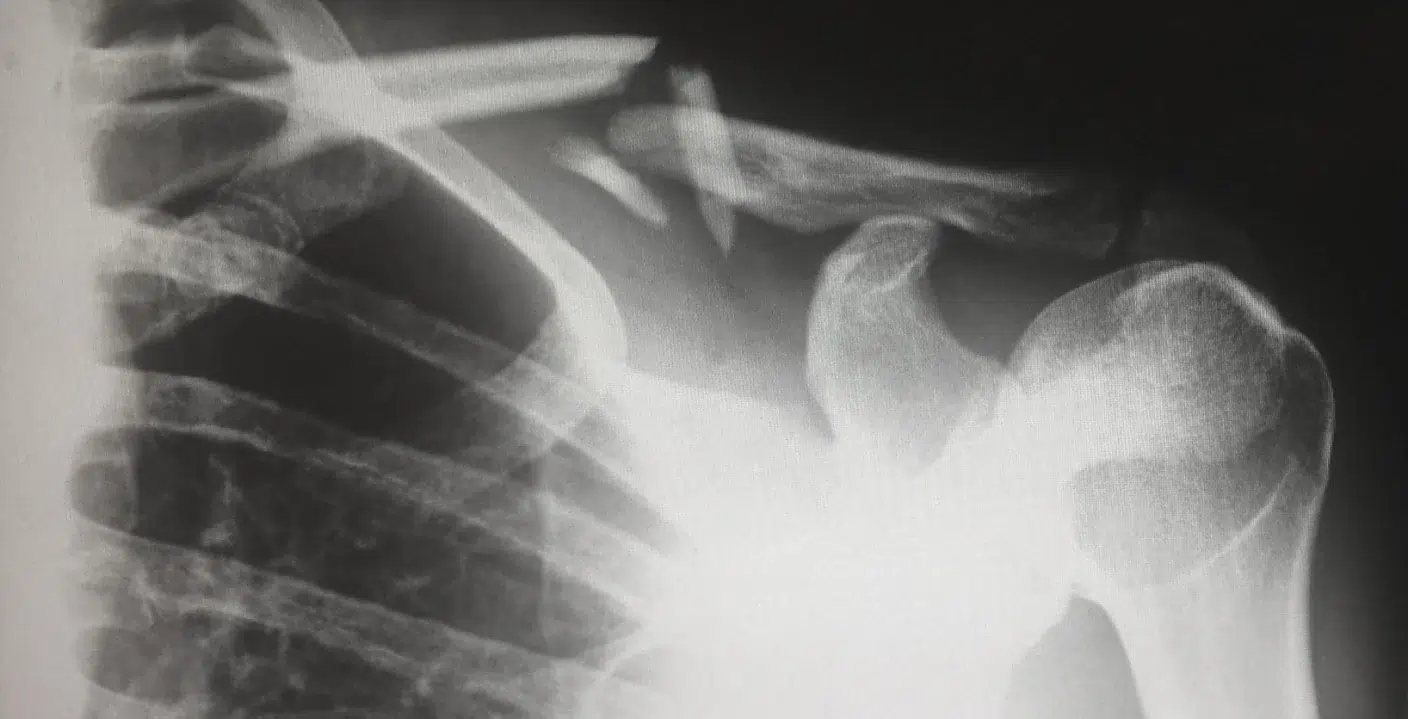Personal injury is an essential area of law. If you’ve been involved in an accident, you may be looking for an experienced personal injury attorney who can help you seek compensation for the harm that was caused to you and the medical bills and other expenses you’ve acquired.
Working with an injury attorney with a strong understanding of personal injury law can make it much easier to work with the other party and their insurance company. AMS Law can provide a free consultation, and we have the TX accident statistics and data to back up your case.
Auto accidents and other kinds of personal injury cases can cause significant injuries, and seeking financial recovery is essential to get back what was lost and ensure you have future options. Talking to an attorney who specializes in your case gives you the chance to have a strong, trusted legal advocate on your side.
34
Years of combined experience
700+
Cases
90%+
Won cases

There are Several Types of Personal Injury Claims
While personal injury is a broad category, many attorneys focus on particular areas. As your trusted partner in personal injury cases, AMS Law understands that specialization is vital in personal injury cases. Our attorneys have the expertise and knowledge to navigate the complexities of personal injury law. We are dedicated to handling matters related to accidents and negligence, ensuring that you receive the justice and compensation you deserve.
Premises Liability
Premises liability cases involve someone being injured on the property of another person, typically through the negligent actions of the owner of that property. These claims cover a wide range of injuries, from slip and fall to being injured due to inadequate maintenance or security, including retail store and construction site accidents.
When you’re looking for a personal injury attorney for this type of claim, you want to find someone comfortable with fall accidents and related types of personal injury claims under Texas law. While your personal injury claim is unique to you, it may also share characteristics with similar claims.
You can get a free consultation with a personal injury lawyer to discuss medical bills and other expenses common to personal injury cases. We understand the significance of your claim and how to best help you after being injured on another person’s property.
The personal injury claim process takes time and effort; you don’t have to do it alone. Working with an injury attorney who handles premises liability cases for accident victims gives you the best chance to recover compensation through a law firm.
You can get a free consultation with a personal injury lawyer to discuss medical bills and other expenses common to personal injury cases.
Catastrophic Injury
A catastrophic injury is a type of personal injury case that is primarily concerned with complex, life-altering, and permanent injuries. If you’ve experienced a catastrophic injury, you need a free consultation from a personal injury lawyer who has handled cases like yours.
While nearly every injury attorney has dealt with personal injury cases that are serious or difficult, a personal injury victim who has experienced a catastrophic event often needs more support and guidance as they navigate their case.
Insurance companies may fight back against paying out after a severe accident.
Having a Texas lawyer familiar with your type of injury case can help move things forward while you focus on physical recovery. There are many facets to a catastrophic injury, and trusting your attorney can help increase your peace of mind during a difficult time by pursuing the maximum compensation you deserve to secure your future and ensure you have the necessary resources for ongoing medical care, rehabilitation, and quality of life improvements.
If you’ve experienced a catastrophic injury, you need a free consultation from a personal injury lawyer who has handled cases like yours.
Wrongful Death
Another category of personal injury is wrongful death. Under Texas personal injury laws, a wrongful death can occur when someone loses their life through another person’s negligence.
If you have a case, working with a law firm and talking to a trial lawyer can help you explore your options. The other party’s insurance company may offer you a settlement, but it will typically be less than what you truly deserve for compensation.
For example, there may be high medical bills and other expenses if significant injuries lead to death. These kinds of cases are different from a more typical injury case since there are also funeral expenses, emotional suffering, and other factors that must be considered.
No amount of compensation can fully make up for the loss of a loved one. However, pursuing a wrongful death claim may offer some closure to the family and help mitigate any financial hardships that may arise from their tragic loss.
Are You a Personal Injury Victim in the Dallas/Fort Worth Area?
Dealing with a personal injury and the resulting lawsuit can be a tough time in life. You may feel frustrated, depressed, anxious, and upset. Fortunately, you can get the help you need when you work with Dallas personal injury attorneys who are used to taking on insurance companies and protecting their client’s best interests.
“If you have a case and an attorney to help you, you’re much more likely to receive compensation for the injuries you’ve experienced…”
AMS personal injury lawyers understand how to work with the other party to the incident, their insurance provider, and others who can give valuable information about the case. When you hire AMS Law firm to help you after a motorcycle accident or other event, you get the support you need and can focus on getting better and moving forward.
Car accidents, truck accidents, motorcycle accidents, and other types of cases in the personal injury space can change lives, and you deserve fair and just compensation for the harm that has been caused. If the other party was negligent and you were injured, getting compensation to help you recover is essential.
Your Dallas personal injury case is unique, but it’s also similar to other cases in the same category of personal injury law. Getting a free consultation in your injury case can help you see your options and what AMS Law can do for you. By getting that information, you can decide whether to proceed, and you’ll also have an idea of what you can expect.
There are no guarantees with personal injury cases.
If you have a case and an attorney to help you, you’re much more likely to receive compensation for the injuries you’ve experienced. Insurance companies often don’t want to work directly with you and may offer a small settlement hoping you’ll take it and not pursue anything.
Work with a Dallas personal injury attorney for a free case evaluation before you sign anything or agree to anything with the insurance company. That can help you have more clarity about what your case may be worth, so you can make the right choice for your future and get the help and support you deserve for the journey.
“If you have a case and an attorney to help you, you’re much more likely to receive compensation for the injuries you’ve experienced…”

Personal Injury Attorneys Can Help You Seek Compensation
When you reach out to a personal injury lawyer at AMS Law, you take the first step toward the fair and just compensation you deserve for your injuries. In your case, a financial award can include lost wages, medical expenses, and much more. Personal injury cases often involve ongoing care expenses, pain and suffering, emotional damage, and other areas.
“…we can help you work with insurance providers to recover compensation.”
By working with a trusted injury attorney familiar with your kind of case, you can pursue the compensation you need to pay medical bills, protect yourself from the harm of lost income, and work with professionals who can help you move past emotional trauma.
A personal injury attorney understands that accident victims need and deserve compensation.
Depending on the type and severity of the injury, your life may be permanently altered by the accident. That can mean needing care or help for the future, not being able to return to your previous line of work, and having difficulties with many areas of life.
But when you contact our experienced Dallas/Fort Worth personal injury attorneys, you can talk with our team about the facts of your personal injury case and how we can help you work with insurance providers to recover compensation. Your case may even need to go to trial, and Texas juries understand that personal injury lawyers are advocating for people who have been harmed.
Taking your case before a jury requires a trial lawyer with experience with cases like yours. While you may be able to have the attorney settle your case out of court, it’s essential to understand the chances that it will go to trial. If you have a complex, challenging, or unique case, AMS Law is fully prepared for that possibility.
Understandably, you may feel stressed and worried when you start the process of a personal injury lawsuit. It’s not something most people want to go through, but it can be a precious way to protect yourself. You don’t have to deal with medical bills and other issues alone when you have an attorney to help build and present your case.
Your focus after a personal injury should be on getting better and healing afterward.
Working with an attorney means you can focus on yourself and let AMS Law handle the interactions with the insurance company, evidence collection from the accident scene and police report, witness statements, and other details.
“…we can help you work with insurance providers to recover compensation.”
Your Personal Injury Claim is Important for Your Future
While personal injury attorneys can’t guarantee the level of compensation you will receive, they can talk to you about the range of compensation you can expect and how likely you are to have your case settled quickly versus needing to go to trial. The more experience your personal injury attorney has with cases like yours, the better their estimates may be.
“…taking your injury case to an attorney is essential to protecting your health and finances for the future.”
If you’ve been in a car wreck or motorcycle accident in the Dallas area, or you have another type of personal injury claim, taking your injury case to an attorney is essential to protecting your health and finances for the future. Not only do you deserve compensation for your injuries, but you also have to make sure you can get the continued medical care you need.
Car accidents, truck accidents, and other injury cases can alter your future in many ways. Since Texas is an at-fault state, that means someone will be ruled to be at fault in the accident. If that’s the other party, or if you have less than 51% of the fault in your case, you can work with an injury attorney to seek financial compensation.
AMS Law firm has a team of experienced personal injury lawyers who will review your case’s facts and give you essential information on how to address the future. Because every personal injury case is different, it’s essential to talk to an attorney who typically handles these cases to get the best advice.
By choosing to work with a personal injury law firm, you can have hope and support for the future, along with the opportunity to get a higher level of compensation than what the other party’s insurance would generally offer you.
You deserve a future where you don’t have to struggle financially with the aftermath of your injury.
Seeking compensation is the right choice to help protect yourself and your family. AMS Law’s experienced Dallas attorneys can help you determine what’s fair and what you want to pursue in your particular case.
Whether you have a family you’re trying to support or are simply worried about your personal bills piling up, reaching out to an attorney about your personal injury case is the first step toward receiving compensation. The process may take some time, depending on the specific factors of your case, but it can be well worth it in the end.
“...taking your injury case to an attorney is essential to protecting your health and finances for the future.”

Work With a Trusted Personal Injury Lawyer for Your Case
When you work with a personal injury lawyer, you need someone you can trust and rely on. While all personal injury lawyers have a specific level of education and training they must meet, they are all different. They have different personalities and strengths and may or may not have taken additional educational courses for their specialty.
“Fortunately, most personal injury cases can be settled out of court, so you may not have to go before a judge or deal with a prolonged trial.”
If you’ve been in a motorcycle accident, car accident, truck wreck, or are pursuing a wrongful death case on behalf of a lost loved one, reaching out to an injury attorney is the starting point. We understand the importance of finding the right attorney to prioritize your needs and fight for your best interests. That’s why AMS Law offers free consultations, allowing you to speak with multiple attorneys and make an informed decision. We believe in building a solid attorney-client relationship based on trust and understanding. During this challenging time, you must have an experienced legal team to negotiate on your behalf and pursue litigation to secure maximum compensation.
As the injured party, or the person choosing to pursue compensation for losing a loved one, you want the best chance of a favorable outcome. From medical expenses to lost wages, pain and suffering, and emotional struggles, there can be a lot of financial issues and other difficulties after a personal injury.
Fortunately, most personal injury cases can be settled out of court, so you may not have to go before a judge or deal with a prolonged trial. Your attorney will give you advice about your specific case, which will help you decide what you want to pursue and what you can expect.
Knowing what you can expect during your case is often a lot of the battle and can help reduce your anxiety over the lawsuit. To have that, though, you need to be able to trust the attorney you’re working with. Even if they’re great at their work, you also want to feel comfortable with them.
Remember, your attorney is your advocate with the insurance company and other parties to the lawsuit and will also represent you in the courtroom if your case goes to trial. Feeling comfortable with them and their abilities and knowledge is essential to having peace of mind during and after your case.
“Fortunately, most personal injury cases can be settled out of court, so you may not have to go before a judge or deal with a prolonged trial.”
An Experienced Personal Injury Lawyer Will Work to Recover for You
Personal injury attorneys understand the importance of recovering your compensation when you have a personal injury claim. Depending on the complexity of your claim, you should work with an attorney who’s well-versed in personal injury trial law. Many injury cases are settled without trial, but you should always be prepared to take your case that far.
“AMS Law has over 15 years of experience in personal injury cases and has helped clients receive millions of dollars in settlements.”
An experienced attorney with a proven track record can give you the best chance of receiving total and fair compensation in your case. While your attorney can’t guarantee any specific outcome, working with an injury attorney with the skills and experience you’re looking for can increase your chances of success.
To get the most favorable outcome regarding financial compensation, choose a law firm with good reviews that can show you their record of getting fair settlement offers for clients. An injury attorney who’s been helping clients for a more extended period is often a good choice, as well, because they have a more robust experience they can use to help you. AMS Law has over 15 years of experience in personal injury cases and has helped clients receive millions of dollars in settlements.
Every attorney has to start somewhere, but the bottom line is that experience matters. Don’t put your personal injury case in the hands of someone who doesn’t have the experience you need to be successful. Instead, choose an attorney who has experience working with cases like yours.
Not only does that increase your chances of success and peace of mind, but it also shows the insurance company and any other parties to the case that you’re serious about pursuing fair compensation and doing what it takes to have your voice heard and protect your interests.
Even if you were partially at fault in the accident, or the insurance company refused to pay when you requested compensation, you may still recover financial compensation. The specific factors surrounding the accident matter, and you need an attorney who will investigate all of that on your behalf.
Extenuating circumstances may be critical to your case’s value, like a witness you were unable to contact or a video of the scene from a nearby business camera. The other party to the accident may have a prior lawsuit, or there are other reasons your case or compensation should be adjusted.
If there are ways to enhance your side of the case and provide additional compensation, working with an attorney gives you the best opportunity to do that. Protecting your rights during a personal injury lawsuit is extremely important, and you don’t have to fight the battle alone. It helps to have legal support and advocacy; an AMS Law personal injury attorney will give you that.
“AMS Law has over 15 years of experience in personal injury cases and has helped clients receive millions of dollars in settlements.”


